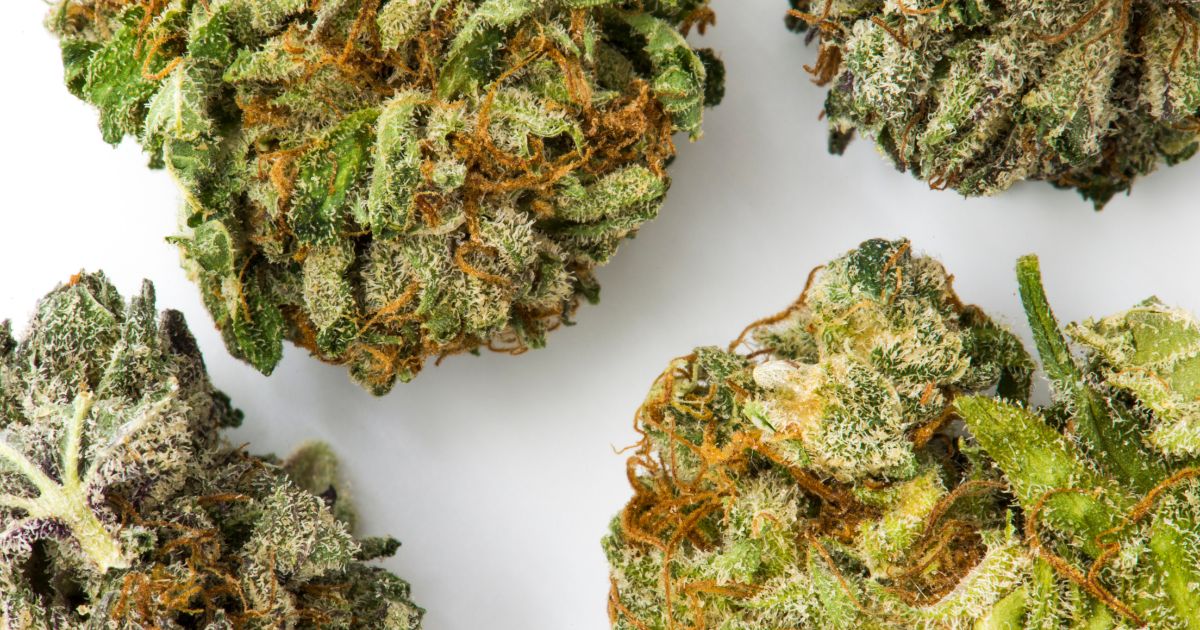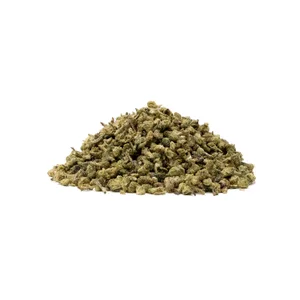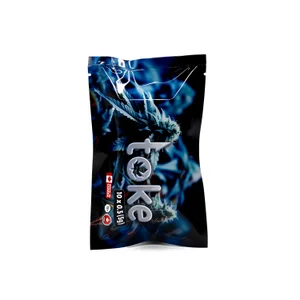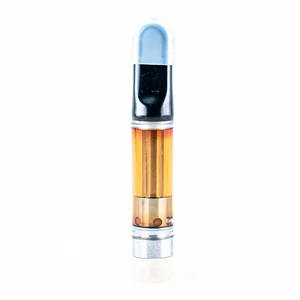Cannabis for Crohn’s Disease: Exploring Its Potential Benefits and Efficacy
Table of Contents
If you’re reading this, you’re likely researching the potential of cannabis for Crohn’s disease. In this comprehensive guide, we outline the therapeutic properties of cannabis as a natural remedy for managing Crohn’s symptoms, its potential benefits and efficacy.
From exploring the scientific evidence to understanding the benefits of cannabinoids, we navigate the intricacies of using cannabis as a complementary treatment option. Discover the latest research, consumption methods, strain recommendations, and personal testimonials to empower your journey to toward relief and improved quality of life. Join us as we unlock the promising possibilities of cannabis for Crohn’s disease, providing hope and valuable insights along the way.
Understanding Crohn’s Disease
Crohn’s disease is a complex condition that involves inflammation of the digestive tract. It falls under the umbrella of inflammatory bowel diseases (IBD) and can affect any part of the gastrointestinal tract, from the mouth to the anus. The exact cause of Crohn’s disease is unknown, but it is believed to involve a combination of genetic, environmental, and immune system factors.
The chronic inflammatory nature of Crohn’s disease leads to various symptoms that can significantly impact patients’ quality of life. These symptoms may include persistent diarrhea, abdominal pain and cramping, rectal bleeding, fatigue, reduced appetite, and unintended weight loss. In some cases, complications such as bowel obstruction, ulcers, and fistulas may arise.
Conventional Treatment Options for Crohn’s Disease
Before we delve into the potential benefits of cannabis for Crohn’s disease, it is important to briefly discuss the conventional treatment options available. The primary goals of treatment are to reduce inflammation, alleviate symptoms, and achieve and maintain remission.
Conventional treatment approaches for Crohn’s disease often involve medications such as aminosalicylates, corticosteroids, immunomodulators, and biologics. These medications aim to suppress the overactive immune response and reduce inflammation in the digestive tract. Additionally, lifestyle modifications, dietary changes, and surgery may be recommended in certain cases.
While these treatments can be effective for many patients, they may not work for everyone and can come with side effects. This has led some individuals to explore alternative therapies, including cannabis, in the hope of finding additional relief.
The Potential Benefits of Cannabis for Crohn’s Disease
Cannabis contains various compounds, known as cannabinoids, that interact with the body’s endocannabinoid system. This system plays a role in regulating many physiological processes, including inflammation and immune responses. As a result, there is interest in understanding how cannabis and its cannabinoids may potentially benefit individuals with Crohn’s disease.
Research into the use of cannabis for Crohn’s disease is still in its early stages, but some studies have shown promising results. For example, a study published in the journal Clinical Gastroenterology and Hepatology found that patients who used cannabis reported improvements in their Crohn’s disease symptoms, including reduced pain, better appetite, and improved quality of sleep.
Cannabinoids, such as tetrahydrocannabinol (THC) and cannabidiol (CBD), have demonstrated anti-inflammatory properties in preclinical studies. These properties may help reduce inflammation in the gastrointestinal tract, which is a central feature of Crohn’s disease. By reducing inflammation, cannabis may alleviate symptoms and contribute to disease management.
Furthermore, cannabis has been reported to have analgesic properties, which can help with the abdominal pain that is often associated with Crohn’s disease. It may also have antiemetic effects, potentially relieving nausea and vomiting, which can be side effects of both the disease itself and conventional medications.
The Endocannabinoid System and Crohn’s Disease
Introduction to the Endocannabinoid System
The human body has a complex network known as the endocannabinoid system (ECS), which plays a crucial role in regulating various physiological processes. The ECS is composed of cannabinoid receptors, endocannabinoids (cannabinoids produced within the body), and enzymes involved in their synthesis and degradation. This system is involved in maintaining balance and homeostasis throughout the body.
The Role of the Endocannabinoid System in Inflammation and Gut Health
One of the key functions of the endocannabinoid system is to regulate inflammation. Inflammation is the body’s natural response to injury or infection, but when it becomes chronic or excessive, it can contribute to the development and progression of diseases, including Crohn’s disease.
Research suggests that the endocannabinoid system may play a role in modulating inflammation in the gut. The cannabinoid receptors, CB1 and CB2, which are part of the ECS, are found in high concentrations in the gastrointestinal tract. Activation of these receptors by endocannabinoids or external cannabinoids, such as those found in cannabis, can influence immune responses and help regulate inflammation in the gut.
Additionally, the ECS is involved in maintaining gut health. It has been observed that alterations in the endocannabinoid system may be associated with gastrointestinal disorders, including Crohn’s disease. The ECS helps regulate gut motility, intestinal permeability, and the balance of beneficial bacteria in the gut microbiome, all of which are crucial for maintaining a healthy digestive system.
Existing Research on the Relationship between the Endocannabinoid System and Crohn’s Disease
Scientific investigations have explored the relationship between the endocannabinoid system and Crohn’s disease. Studies have revealed alterations in the expression of cannabinoid receptors and endocannabinoids in patients with Crohn’s disease, suggesting a potential dysregulation of the ECS in this condition.
Furthermore, genetic variations in the genes encoding cannabinoid receptors have been associated with an increased risk of developing Crohn’s disease. These findings highlight the potential involvement of the endocannabinoid system in the pathogenesis of the disease.
Potential Therapeutic Benefits of Targeting the Endocannabinoid System in Crohn’s Disease Management
Given the role of the endocannabinoid system in regulating inflammation and gut health, targeting this system may hold therapeutic potential for managing Crohn’s disease.
Studies have investigated the effects of cannabinoids, both plant-derived and synthetic, on Crohn’s disease symptoms. Some research suggests that cannabinoids, such as THC and CBD, can reduce inflammation in the gut and alleviate symptoms associated with Crohn’s disease. This anti-inflammatory action may be attributed to the modulation of immune responses and the inhibition of pro-inflammatory mediators.
In addition to their anti-inflammatory properties, cannabinoids may also help regulate gut motility and reduce visceral hypersensitivity, which can contribute to abdominal pain in Crohn’s disease.
It is important to note that while the potential therapeutic benefits of targeting the endocannabinoid system in Crohn’s disease management are promising, more research is needed. Clinical trials are underway to further investigate the efficacy and safety of cannabinoid-based therapies for Crohn’s disease.
Cannabinoids and Their Potential Effects
Introduction to Cannabinoids
Cannabis, a plant known for its medicinal properties, contains various compounds called cannabinoids. The two most well-known cannabinoids found in cannabis are tetrahydrocannabinol (THC) and cannabidiol (CBD). THC is primarily responsible for the psychoactive effects of cannabis, while CBD does not produce a “high” and has gained attention for its potential therapeutic properties.
How Cannabinoids Interact with the Endocannabinoid System
Cannabinoids interact with the body’s endocannabinoid system (ECS), specifically the cannabinoid receptors (CB1 and CB2) found throughout the body. THC binds directly to these receptors, while CBD has a more complex mechanism of action, modulating the ECS indirectly.
When cannabinoids bind to the CB1 and CB2 receptors, they can influence various physiological processes, including inflammation, pain perception, and immune responses. By interacting with the ECS, cannabinoids have the potential to regulate these processes and contribute to the management of Crohn’s disease symptoms.
Research Studies on the Effects of Cannabinoids on Crohn’s Disease Symptoms
Several research studies have investigated the effects of cannabinoids on Crohn’s disease symptoms. These studies have explored the potential benefits of both THC and CBD in alleviating inflammation, reducing pain, and modulating the immune response associated with the condition.
A study published in the journal Clinical Gastroenterology and Hepatology examined the effects of cannabis use on Crohn’s disease symptoms in a group of patients. The researchers found that cannabis use was associated with significant improvements in symptoms, including reduced pain, improved appetite, and better quality of sleep. These findings suggest the potential of cannabinoids in providing relief for individuals with Crohn’s disease.
Potential Anti-inflammatory, Analgesic, and Immunomodulatory Properties of Cannabinoids
One of the key potential effects of cannabinoids in the context of Crohn’s disease is their anti-inflammatory properties. Inflammation plays a central role in the pathogenesis of Crohn’s disease, and cannabinoids have been found to modulate inflammatory responses. Research suggests that cannabinoids can inhibit the release of pro-inflammatory substances and reduce the infiltration of immune cells in the gut, thereby dampening the inflammatory process.
Cannabinoids also possess analgesic properties, which can be beneficial for individuals experiencing abdominal pain and cramping associated with Crohn’s disease. They can interact with the ECS to modulate pain perception and reduce discomfort.
Furthermore, cannabinoids have shown potential immunomodulatory effects, influencing the immune response in Crohn’s disease. They can regulate the release of cytokines, signaling molecules involved in inflammation, and help restore immune balance. This modulation of the immune system may contribute to reducing inflammation and preventing excessive immune responses that can damage the gastrointestinal tract.
Best Cannabis Strains for Crohn’s Disease
Crohn’s disease patients are increasingly exploring the potential benefits of cannabis for symptom management. Different cannabis strains contain a variety of cannabinoids and terpenes that may offer therapeutic effects. Here are five strains that have shown potential in aiding Crohn’s disease management:
Strain 1: Harlequin
Harlequin is a cannabis strain known for its balanced ratio of THC to CBD. With a THC content ranging from 5% to 15% and CBD levels reaching up to 15%, Harlequin offers a gentle, non-intoxicating experience. It possesses a terpene profile rich in myrcene, pinene, and caryophyllene. This strain’s high CBD content and its potential anti-inflammatory and analgesic properties make it potentially beneficial for Crohn’s disease management. Although limited scientific studies are available, anecdotal evidence suggests that Harlequin may help alleviate symptoms such as abdominal pain, inflammation, and discomfort.
Strain 2: ACDC
ACDC is a renowned cannabis strain known for its high CBD content and minimal THC levels, often below 1%. This strain’s CBD-to-THC ratio can exceed 20:1, making it a popular choice for medical users seeking symptom relief without the psychoactive effects of THC. ACDC contains terpenes such as myrcene, pinene, and limonene. It is believed to provide potential benefits for individuals with Crohn’s disease, including reducing pain, inflammation, and nausea. While further scientific research is needed, anecdotal reports from users with Crohn’s disease highlight the positive effects of ACDC in managing symptoms and improving overall well-being.
Strain 3: Cannatonic
Cannatonic is a hybrid strain known for its balanced CBD-to-THC ratio. With CBD levels often surpassing THC levels, Cannatonic offers potential therapeutic properties for Crohn’s disease patients. It contains terpenes such as myrcene, pinene, and terpinolene. This strain’s potential effects on reducing inflammation and improving gut health make it an attractive option for individuals with Crohn’s disease. While limited scientific studies specifically focus on Cannatonic and Crohn’s disease, user experiences and testimonials suggest that this strain may help alleviate symptoms, improve appetite, and promote overall digestive well-being.
Strain 4: Blueberry Kush
Blueberry Kush is an indica-dominant strain that combines the genetics of Blueberry and OG Kush. This strain is characterized by its sweet blueberry aroma and potential benefits for individuals with Crohn’s disease. Blueberry Kush typically has moderate to high THC levels, ranging from 15% to 25%, and contains terpenes such as myrcene, caryophyllene, and limonene. It may help manage pain, promote appetite, and improve overall well-being in Crohn’s disease patients. While scientific research on Blueberry Kush specifically in the context of Crohn’s disease is limited, user reviews highlight its potential efficacy in symptom relief.
Strain 5: Granddaddy Purple
Granddaddy Purple is an indica-dominant strain well-known for its relaxing and sedating effects. This strain features high THC levels, often exceeding 20%, and contains terpenes such as myrcene, caryophyllene, and pinene. While not directly targeting Crohn’s disease symptoms, Granddaddy Purple may contribute to stress reduction, relaxation, and improved sleep, which can indirectly benefit individuals with Crohn’s disease. Although scientific studies on the specific effects of Granddaddy Purple in Crohn’s disease are lacking, testimonials from individuals with the condition suggest its potential in enhancing overall well-being and promoting a sense
Considerations and Precautions
When considering cannabis as a treatment for Crohn’s disease, it is crucial to take certain considerations and precautions into account. While cannabis has shown potential benefits for symptom management, it is important to approach its use responsibly and under the guidance of healthcare professionals. Here are some important points to consider:
Important Considerations before Using Cannabis as a Treatment for Crohn’s Disease
- Consultation with Healthcare Professionals: Before incorporating cannabis into your treatment plan, it is crucial to consult with healthcare professionals who are knowledgeable about both Crohn’s disease and medical cannabis. They can provide personalized advice, consider potential interactions with other medications, and monitor your progress.
- Adherence to Local Laws and Regulations: Familiarize yourself with the laws and regulations regarding medical cannabis in your jurisdiction. Ensure that you are legally allowed to use cannabis for medical purposes and follow any specific requirements or restrictions imposed by local authorities.
- Individualized Approach: Every individual’s response to cannabis can vary. It is important to recognize that what works for one person may not work the same way for another. Tailor your approach to your specific needs, symptoms, and medical history. Consider factors such as preferred consumption methods (smoking, vaporizing, edibles, etc.) and cannabinoid ratios (THC:CBD) that work best for you.
Potential Risks, Side Effects, and Drug Interactions
- Psychoactive Effects: Cannabis containing high levels of THC can cause psychoactive effects, including euphoria, impaired coordination, and cognitive effects. These effects may interfere with daily activities, especially if high THC strains are used.
- Respiratory Risks: Smoking cannabis may pose risks to respiratory health, similar to smoking tobacco. Alternative methods of consumption, such as vaporization or edibles, can minimize these risks.
- Potential Side Effects: Some individuals may experience side effects such as dry mouth, dizziness, fatigue, or changes in appetite. These effects are generally mild, but it is important to be aware of them.
- Drug Interactions: Cannabis may interact with certain medications, including immunosuppressants and blood thinners. Consult with your healthcare provider to ensure there are no potential interactions between cannabis and your current medications.
Importance of Consultation with Healthcare Professionals and Adherence to Laws
It cannot be stressed enough that consulting with healthcare professionals is crucial before incorporating cannabis into your treatment plan. They can provide guidance, monitor your progress, and ensure that cannabis use aligns with your overall treatment goals. Healthcare professionals can also help you navigate potential drug interactions and ensure that cannabis use is integrated safely with your existing medications.
Additionally, adhering to local laws and regulations surrounding medical cannabis is important to ensure legal compliance. This includes obtaining the necessary permits or authorizations and understanding the specific rules and restrictions in your area.
Individualized Approaches and Dosage Control
Each person’s response to cannabis is unique, and finding the right approach requires individualization. Start with low doses and gradually increase as needed, closely monitoring how your body responds. This allows you to determine the optimal dosage for symptom management while minimizing potential side effects.
Keeping a journal to track your cannabis use, dosage, symptom relief, and any side effects can be helpful in identifying patterns and adjusting your approach accordingly.
Conclusion
Crohn’s disease, a chronic inflammatory condition, poses significant challenges for patients. As interest in alternative treatments like cannabis grows, its potential benefits for managing Crohn’s disease have come into focus. The endocannabinoid system, responsible for regulating inflammation and gut health, offers a promising avenue for therapeutic interventions. Cannabinoids found in cannabis, such as THC and CBD, interact with this system and exhibit anti-inflammatory, analgesic, and immunomodulatory properties. Certain cannabis strains like Harlequin, ACDC, Cannatonic, Blueberry Kush, and Granddaddy Purple show potential in alleviating symptoms. However, caution is necessary. Consultation with healthcare professionals, adherence to local regulations, and individualized approaches with careful dosage control are essential. By navigating this path responsibly, individuals with Crohn’s disease can potentially improve their quality of life and find relief from the challenges they face.
FAQs
What type of cannabis is good for Crohn’s disease?
For Crohn’s disease, cannabis strains with a balanced ratio of THC and CBD are often recommended. Strains like Harlequin, ACDC, and Cannatonic are known for their potential therapeutic benefits due to their balanced cannabinoid profile. These strains offer the potential advantages of both THC and CBD without causing excessive psychoactive effects.
Is CBD good for Crohn’s disease?
CBD (cannabidiol) has shown promise in managing Crohn’s disease symptoms. It exhibits anti-inflammatory properties, which may help reduce inflammation in the gut. CBD also has potential analgesic effects, providing relief from pain associated with Crohn’s disease. However, individual responses to CBD may vary, so it is important to consult with a healthcare professional for personalized guidance.
What is the best herb for Crohn’s?
While individual preferences and experiences may differ, some herbs have been traditionally used to support individuals with Crohn’s disease. Turmeric, ginger, and peppermint are commonly cited for their potential to calm inflammation and soothe the digestive system. However, it is crucial to remember that herbal remedies may not work the same for everyone, and consulting with a healthcare professional is advisable.
What calms Crohn’s disease?
Several strategies can help calm Crohn’s disease symptoms. Following a healthy and balanced diet, avoiding trigger foods, managing stress levels, and getting regular exercise can contribute to symptom relief. Additionally, certain medications prescribed by healthcare professionals, such as anti-inflammatories and immunosuppressants, may help manage inflammation and calm Crohn’s disease.
What worsens Crohn’s?
Certain factors can exacerbate Crohn’s disease symptoms. Some common triggers include consuming certain foods that may aggravate the gut, such as spicy or greasy foods, high-fiber foods, or dairy products. Stress and anxiety can also contribute to symptom flare-ups. Smoking and non-steroidal anti-inflammatory drugs (NSAIDs) like ibuprofen are known to worsen Crohn’s disease and should be avoided. It is essential to identify personal triggers and work closely with healthcare professionals to manage and minimize symptom worsening.












